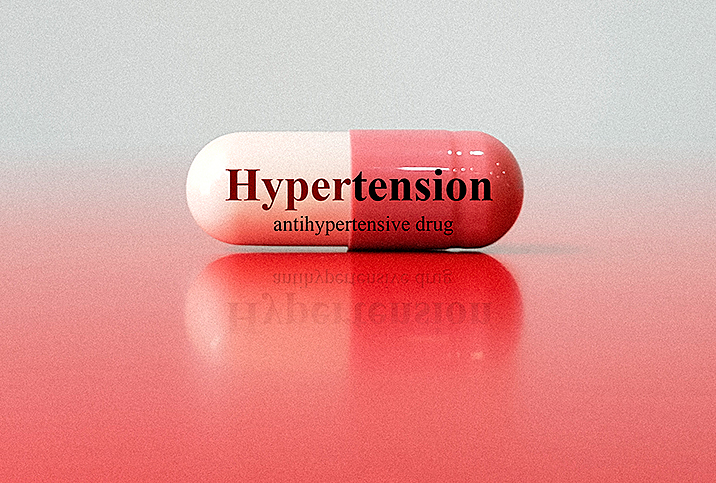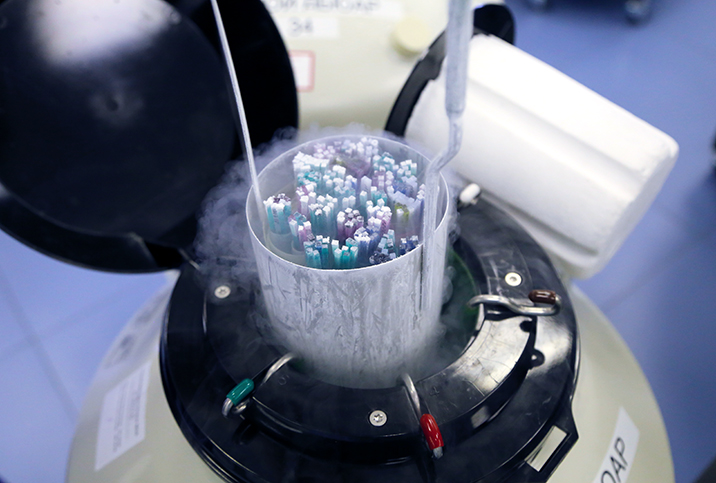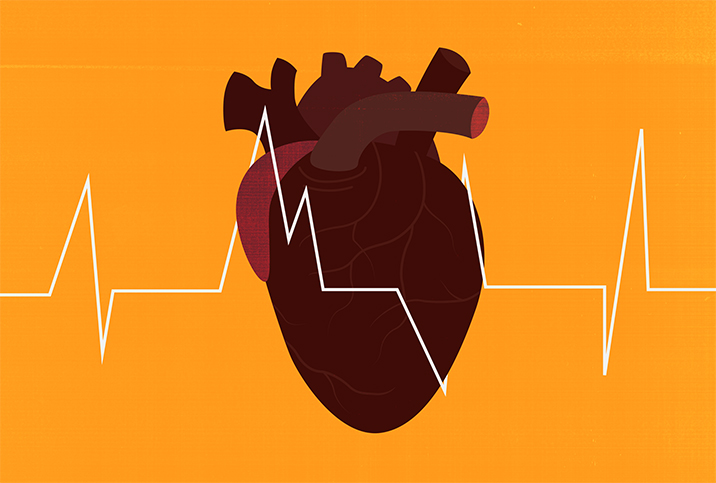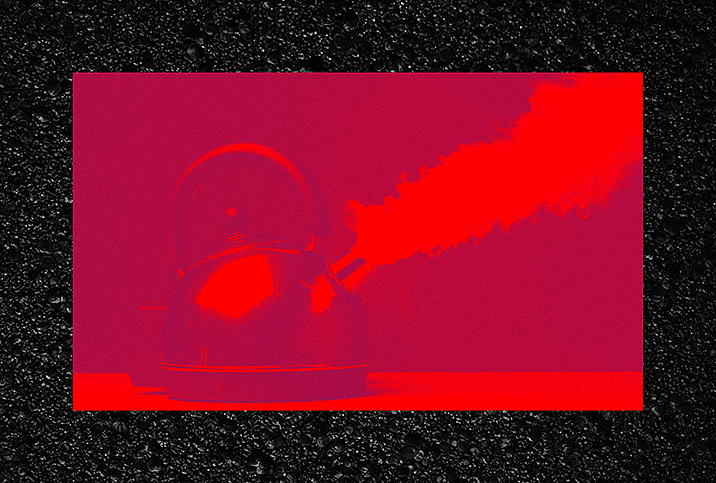What Are the Consequences of Uncontrolled Hypertension?
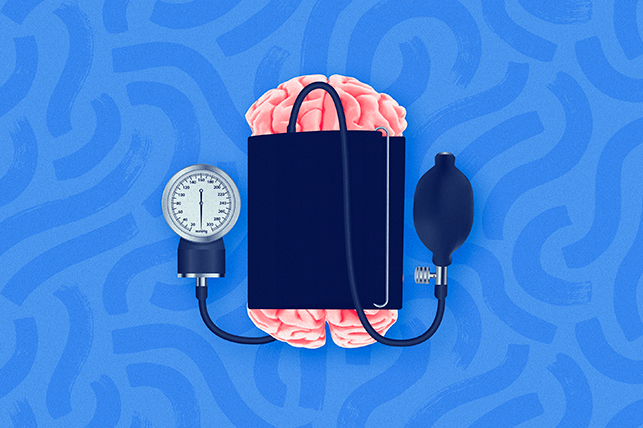
High blood pressure is blood pressure higher than the normal range. Hypertension is defined by the American Heart Association and the American College of Cardiology as blood pressure at or above 130/80 mmHg (millimeters of mercury). Although hypertension often shows no symptoms, it can increase a person's risk of heart disease, stroke and other life-threatening complications, including sexual health.
In this Giddy exclusive, Caitlin Giesler, M.D., a cardiologist at Ascension Medical Group in Austin, Texas, discusses the potential consequences of not managing high blood pressure.
Editor's Note: This interview has been edited for length and clarity.
What are the ways in which high blood pressure harms the body?
Giesler: I think what surprises people the most is that high blood pressure is the No. 1 cause of dementia. The problem with high blood pressure, in general, is end organ damage—damage to your organs from high-pressure wear and tear over time. You can have long-term wear and tear, such as with dementia, on the brain vessels. High pressure can also affect your heart, causing either thickening or enlargement or weakening of the heart muscle.
Forms of heart failure are often related to high blood pressure. You can have kidney failure related to high blood pressure because it affects the small vessels of your kidneys. You can have problems with your eyes and other organs as well.
There's the long-term wear and tear, and there's the acute severe effects of sudden-onset high blood pressure. If you have high blood pressure and it spikes extremely high, that can cause a sudden stroke. It can cause heart strain. Obviously, it's important to control high blood pressure long-term.
I understand high blood pressure is not a form of heart disease. However, it can lead to heart disease. What differentiates hypertension from heart disease?
When we talk about heart disease, we talk about the actual heart itself being diseased.
That disease can be the heart muscle being affected, where it gets weak or enlarged, or the arteries that feed the heart are affected. Those coronary arteries sitting outside on top of the heart are the things that get blocked up and cause heart attacks.
High blood pressure leads to heart disease by causing either heart failure or it causes coronary artery disease. That is from blockage and plaque buildup in those arteries over time.
Plaque buildup is the result of wear and tear, and injury to the vessels. Part of that injury can be high blood pressure. That's why high blood pressure, diabetes, high cholesterol, smoking: all of those things cause the plaque to build up over time. That's how high blood pressure leads to heart disease.
The blood vessels in your body are akin to tree branches. You have the aorta in the middle of your body. That's the big trunk. And then everything kind of stems from that, like branches. High blood pressure is high pressure in this system of vessels.
The analogy I use is, it's like a garden hose. You have a certain amount of pressure to get enough volume and pressure out to feed your whole garden. You need some pressure because if you don't have enough pressure in that system, your garden—your brain, heart and kidneys—doesn't get enough blood flow, and you can pass out or get lightheaded.
If you have high pressure shooting out of that garden hose all the time, you can damage the plants. That's what high pressure does. It damages the organs it's feeding. Also, the high pressure inside those vessels causes them to stiffen over time.
What would be dangerously high blood pressure where it would be considered a medical emergency?
It's kind of a tricky question because if somebody is used to having normal blood pressure of 115 or 120 and then it shoots up to 160, that shift in pressure can be dangerous because their body is not acclimated. But if somebody is used to a blood pressure of 150, which is not good, and all of a sudden, it goes up to 160 or 170, they don't typically notice or have significant effects.
I would say over 180 is very concerning, but most importantly, if you're having symptoms of extremely high blood pressure. And those are typically neurologic symptoms—vision changes, severe headache, or stroke-like symptoms where you have weakness or numbness on one side, difficulty speaking and difficulty moving.
What is the treatment in those emergency scenarios?
It's really dependent because you don't want to drop somebody's blood pressure 60 points suddenly because that can cause neurologic changes. You've got to be very careful with making sure you have adequate blood flow to the brain.
Usually, if you have symptoms or you have severely elevated readings outside of your norm, you go to the emergency room and they will slowly get it under control. But they will also watch very closely for changes in the neurologic status. It is typically treated with medications.
Because hypertension is the 'silent killer,' often without symptoms, how can people be vigilant in tracking and managing their blood pressure?
I think if it's a new diagnosis, you need to check it daily so you have an idea of what it is running and you can see trends. The important thing with blood pressure is it's an easy number to control, the medications work very well, and it greatly reduces your risk of heart attack, stroke and death. You need to know what your normal pressure is by checking it daily initially.
Once you know what your normal blood pressure is and you have it under control with medication or a healthy lifestyle, then you should monitor your blood pressure the way you monitor your weight. You know what you run for the most part; you check it several times per month. And if you notice changes again, you start checking it regularly. It's an easy way to control your health.
If an individual has diabetes, should they be more careful to control their high blood pressure?
I think everybody needs to be careful. Absolutely, if you have diabetes, being really aggressive in your [blood pressure and glucose] numbers and controlling them reduces your risk greatly because diabetes is such a high risk for heart disease. The thresholds for treatment and controlling blood pressure are not different for diabetics.
What I find is people are allowed to live with elevated blood pressure for many years seeing different providers and them saying, "We'll watch it" or "It's probably because you're anxious." Then, they are developing high blood pressure changes during that time. I would hesitate to say certain people need to be more diligent or aggressive because I do think everybody needs to know their number or treat it if it's elevated.
How quickly do blood pressure medications act? How long before the patient is down to a normal level?
It can take a month for it to really get into your system because it is working on a cellular level. It's in your system within several days, but the actual full effect can take a month.
What impact can hypertension have on sexual health?
In men, high blood pressure is a high cause of erectile dysfunction (ED) because it's a blood flow issue. You're damaging the microvessels and an erection is very dependent on those microvessels functioning normally. That damage over time to those microvessels often leads to erectile dysfunction, which is also a very early sign of heart disease.
What type of research on hypertension would you like to see more of?
My area of focus is heart disease and heart risk in women, so I want to have more research understanding differences between men and women. Women tend to metabolize and respond to medications differently. We need better research on the different responses of men and women to different medications.
Something like 85 percent of meds withdrawn from the market are withdrawn because of side effects in women, but that means they're withdrawn from men, too. It's super-important we attain better research on the differences in women and men responding to different medications. It's better for everybody.












